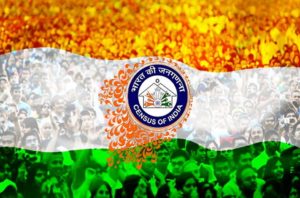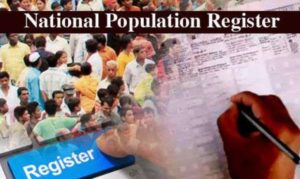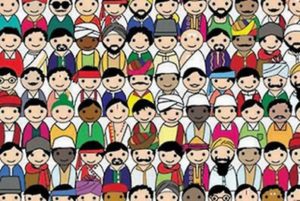AnalyticsBreaking News
The legal basis for NPR, writes Urmisree Deb

December 25: The Census in India is the largest administrative exercise in the country which counts and collects information on various demographic, socio-cultural and economic characteristics of the entire population of the country. The first census in India was held in 1872 in an asynchronous manner, but from 1881 onwards population censuses in the country are held every ten years without any interruption.
 The first census of independent India was conducted in 1951, which was the seventh census in its continuous series. The enumeration period of this Census was from 9th to 28th, February 1951. A three day revision round from 1st to 3rd March was undertaken to update the data as on sunrise of 1st March, the reference date. The 2011 Census in India would be the fifteenth national census in the country. In view of the growing need for a credible identification system in the country due to various factors, like internal security, illegal migration etc, India is contemplating the preparation of a National Population Register (NPR) by collecting specific information on each person residing in the country.
The first census of independent India was conducted in 1951, which was the seventh census in its continuous series. The enumeration period of this Census was from 9th to 28th, February 1951. A three day revision round from 1st to 3rd March was undertaken to update the data as on sunrise of 1st March, the reference date. The 2011 Census in India would be the fifteenth national census in the country. In view of the growing need for a credible identification system in the country due to various factors, like internal security, illegal migration etc, India is contemplating the preparation of a National Population Register (NPR) by collecting specific information on each person residing in the country.
 While the census is legally backed by the Census Act, 1948, the NPR is a mechanism outlined in a set of rules framed under the Citizenship Act, 1955. In exercise of the plenary powers conferred by the Constitution, the Indian Parliament enacted the Citizenship Act (LVII of 1955) by virtue of power under Article 246(1) and Article 11 of the Constitution of India and received the assent of the President of India on 30th December, 1955 to provide a substantive and procedural framework with respect to acquisition and determination of citizenship subsequent to the commencement of the Constitution.
While the census is legally backed by the Census Act, 1948, the NPR is a mechanism outlined in a set of rules framed under the Citizenship Act, 1955. In exercise of the plenary powers conferred by the Constitution, the Indian Parliament enacted the Citizenship Act (LVII of 1955) by virtue of power under Article 246(1) and Article 11 of the Constitution of India and received the assent of the President of India on 30th December, 1955 to provide a substantive and procedural framework with respect to acquisition and determination of citizenship subsequent to the commencement of the Constitution.
 The said Citizenship Act, 1955 has been amended on several times by the Parliament of India i.e. Citizenship Amendment Acts of 1986. 1992, 2003,2005 & 2015. Section 18 of the Citizenship Act, 1955 as amended up-to-date, has empowered the central Government to make necessary Rules. Section 14A was inserted in the Citizenship Act, 1955 by Citizenship (Amendment) Act, 2003 , providing for the compulsory registration of every citizen of India and the issue of a “national identity card” to him or her. It also said the Central government may maintain a “National Register of Indian Citizens”. The Registrar General India shall act as the “National Registration Authority” (and will function as the Registrar General of Citizen Registration). Incidentally, the Registrar General is also the country’s Census Commissioner.
The said Citizenship Act, 1955 has been amended on several times by the Parliament of India i.e. Citizenship Amendment Acts of 1986. 1992, 2003,2005 & 2015. Section 18 of the Citizenship Act, 1955 as amended up-to-date, has empowered the central Government to make necessary Rules. Section 14A was inserted in the Citizenship Act, 1955 by Citizenship (Amendment) Act, 2003 , providing for the compulsory registration of every citizen of India and the issue of a “national identity card” to him or her. It also said the Central government may maintain a “National Register of Indian Citizens”. The Registrar General India shall act as the “National Registration Authority” (and will function as the Registrar General of Citizen Registration). Incidentally, the Registrar General is also the country’s Census Commissioner.
 In 2000, under the NDA government headed by the then Prime Minister Atal Bihari Vajpayee, the Kargil Review Committee recommended compulsory registration of citizens and non-citizens. The recommendations were accepted in 2001 and the 2003 Citizenship (Registration and Issue of National Identity Cards) Rules were framed by the Central Government Under Section 18 of the Citizenship Act, 1955 as mentioned above and notified on December 10, 2003.
In 2000, under the NDA government headed by the then Prime Minister Atal Bihari Vajpayee, the Kargil Review Committee recommended compulsory registration of citizens and non-citizens. The recommendations were accepted in 2001 and the 2003 Citizenship (Registration and Issue of National Identity Cards) Rules were framed by the Central Government Under Section 18 of the Citizenship Act, 1955 as mentioned above and notified on December 10, 2003.
 The present Union Government in pursuance of Sub-Rule (4) of Rule 3 of the Citizenship (Registration and Issue of National Identity Cards) Rules,2003 decides to prepare and update the population register and the field work for house to house enumeration throughout the country except Assam for collection of information relating to all persons who are usually residing within the jurisdiction of Local Registrar shall be undertaken between the 1st day of April,2020 to 30th September,2020 vide Government Notification dated- 31st July,2019.
The present Union Government in pursuance of Sub-Rule (4) of Rule 3 of the Citizenship (Registration and Issue of National Identity Cards) Rules,2003 decides to prepare and update the population register and the field work for house to house enumeration throughout the country except Assam for collection of information relating to all persons who are usually residing within the jurisdiction of Local Registrar shall be undertaken between the 1st day of April,2020 to 30th September,2020 vide Government Notification dated- 31st July,2019.
 Previously conducted in 2010 and 2015, the NPR was first authorised in 2004 by the UPA government after an amendment to the 1955 Citizenship Act. The amendment allowed the centre to “compulsorily register every citizen of India and issue (a) national identity card”. The data for National Population Register was collected in 2010 along with the house listing phase of Census of India 2011. The updation of this data was done during 2015 by conducting door to door survey. The digitisation of the updated information has been completed. Now it has been decided to update the National Population Register along with the House listing phase of Census 2021 during April to September 2020 in all the States/UTs except Assam.
Previously conducted in 2010 and 2015, the NPR was first authorised in 2004 by the UPA government after an amendment to the 1955 Citizenship Act. The amendment allowed the centre to “compulsorily register every citizen of India and issue (a) national identity card”. The data for National Population Register was collected in 2010 along with the house listing phase of Census of India 2011. The updation of this data was done during 2015 by conducting door to door survey. The digitisation of the updated information has been completed. Now it has been decided to update the National Population Register along with the House listing phase of Census 2021 during April to September 2020 in all the States/UTs except Assam.
 Between 2003 and 2009, a pilot project was implemented in select border areas. Over the next two years (2009-2011) NPR was also carried out in coastal areas – it was used to enhance security after the Mumbai attacks – and Resident Identity Cards were issued to nearly 66 lakh residents.
Between 2003 and 2009, a pilot project was implemented in select border areas. Over the next two years (2009-2011) NPR was also carried out in coastal areas – it was used to enhance security after the Mumbai attacks – and Resident Identity Cards were issued to nearly 66 lakh residents.
NPR contains a list of all residents, who have lived at a locality for at least during last six months and plans to stay in that area for the next six months or more. Prepared at the local (village/sub-town), sub-district, district, state and national level under provisions of the Citizenship Act, 1955 and the Citizenship (Registration of Citizens and Issue of National Identity Cards) Rules, 2003, it is mandatory for every “usual resident” of India to register in the NPR.
 The database would contain demographic as well as biometric particulars. The demographic details of every individual are required for every usual resident on 21 points which includes Name of person-,Relationship to head of household-,Father’s name-,Mother’s name-, Spouse’s name (if married)-,Sex-,Date of Birth-,Marital status-,Place of birth-, Nationality (as declared)-,Present address of usual residence-,Duration of stay at present address-,Permanent residential address-,Occupation/Activity -,Educational qualification. In the last NPR, data was collected on 15 criteria.
The database would contain demographic as well as biometric particulars. The demographic details of every individual are required for every usual resident on 21 points which includes Name of person-,Relationship to head of household-,Father’s name-,Mother’s name-, Spouse’s name (if married)-,Sex-,Date of Birth-,Marital status-,Place of birth-, Nationality (as declared)-,Present address of usual residence-,Duration of stay at present address-,Permanent residential address-,Occupation/Activity -,Educational qualification. In the last NPR, data was collected on 15 criteria.
 The government has clarified that no documents will be required for NPR as self-declaration will be treated as enough for data entry in the population registrar. “There is no need of any proof, document and biometric as we believe on people. Whatever you will say would be correct. The Union Home Minister Amit Shah said to ANI that it is possible that some names are missed in the NPR; still their citizenship will not be revoked because this is not the process of NRC. The NRC is a different process. I want to make it clear that nobody will lose citizenship because of NPR.”
The government has clarified that no documents will be required for NPR as self-declaration will be treated as enough for data entry in the population registrar. “There is no need of any proof, document and biometric as we believe on people. Whatever you will say would be correct. The Union Home Minister Amit Shah said to ANI that it is possible that some names are missed in the NPR; still their citizenship will not be revoked because this is not the process of NRC. The NRC is a different process. I want to make it clear that nobody will lose citizenship because of NPR.”
(Views expressed in this article are solely of the author and does not necessarily reflect the views of the portal)




